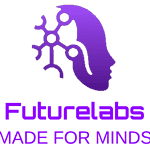The pioneering AI company closed 2024 with an announcement that surprised the community. The tool is not yet available to the general public.
In November 2022, OpenAI amazed the world with the launch of ChatGPT, its renowned AI-powered chatbot. More than two years after this iconic development, the company has introduced O3, a new family of reasoning models that promise to further revolutionize the field of technology.
In detail, the company led by Sam Altman presented two versions of its latest algorithm: O3 Standard—designed to process large amounts of data and perform general tasks—and O3 Mini, which operates with a significantly smaller number of parameters and is ideal for more specific tasks. Thus, OpenAI’s latest advancement takes a step further in its attempt to achieve Artificial General Intelligence (AGI).
Launched on December 20, 2024, OpenAI’s new development has made remarkable progress in abstract reasoning, advanced mathematics, and programming, among other fields. O3 belongs to a new family of products based on ChatGPT which, unlike the renowned chatbot and its predecessor O1, invests more time—and money—in evaluating alternatives before generating a response for the user.
The ARC-AGI evaluation, designed to measure the progress of various tools on their path to becoming AGI, achieved a score of 87.5%, a performance comparable to that of a human. These evaluations include solving visual logic puzzles, which are simple for humans but challenging for computers.
Specifically, O3 also achieved outstanding results in software engineering and a Codeforces programming competition, ranking 175th worldwide. But the advancements don’t stop there: OpenAI’s new family impressed with exceptionally high results in a complex mathematics evaluation.
Despite high expectations, some critics in the AI industry consider the announcement exaggerated. This includes the creator of ARC-AGI himself, who pointed out that there are already much cheaper tools capable of scoring 80% on the same evaluation. The main challenge for O3 is generalizing its knowledge across different tasks.
For now, tech enthusiasts will have to wait to access OpenAI’s new flagship reasoning models. The company announced that security researchers can sign up for a waiting list to test the model, and the American firm expects to release its latest advancement to the public later, though it has not yet confirmed whether it will be offered for free or as a paid service.
What is Artificial General Intelligence?
Broadly speaking, Artificial General Intelligence is the next step for AI developers. These automatic systems are, in theory, capable of successfully performing any intellectual task that humans can.
In other words, AGI will have the ability to understand or learn any intellectual task that a human can perform. Simply put, it is a type of tool designed to mimic the cognitive abilities of the human brain.
Besides the main characteristics mentioned earlier, AGI systems also possess other features that distinguish them from the AI we know today. Among them are:
- Generalization Ability: AGI can transfer its learnings and skills from one field of knowledge to another. This enables it to adapt effectively to new and unforeseen situations.
- Common Sense Knowledge: AGI will also have broad knowledge about the world, including various areas such as facts, relationships, and social norms. This allows for deeper reasoning when making decisions.
Research and development of AGI require interdisciplinary collaboration between fields such as computer science, neuroscience, and cognitive psychology.
The Difference Between AGI and “Narrow” AI
Compared to current tools available to users, AGI presents a higher level of autonomy and a broader range of functions. While traditional AI is designed exclusively to solve specific tasks for which it was programmed, AGI would allow a machine to operate across a wide range of activities due to its ability to generalize and transfer knowledge from one area to another.
Currently, the field of AGI is still in an exploratory phase. However, the launch of O3 and the fierce competition among OpenAI, Google, and X, among others, hint at a near future where these types of tools become part of everyday life.






0 Comments